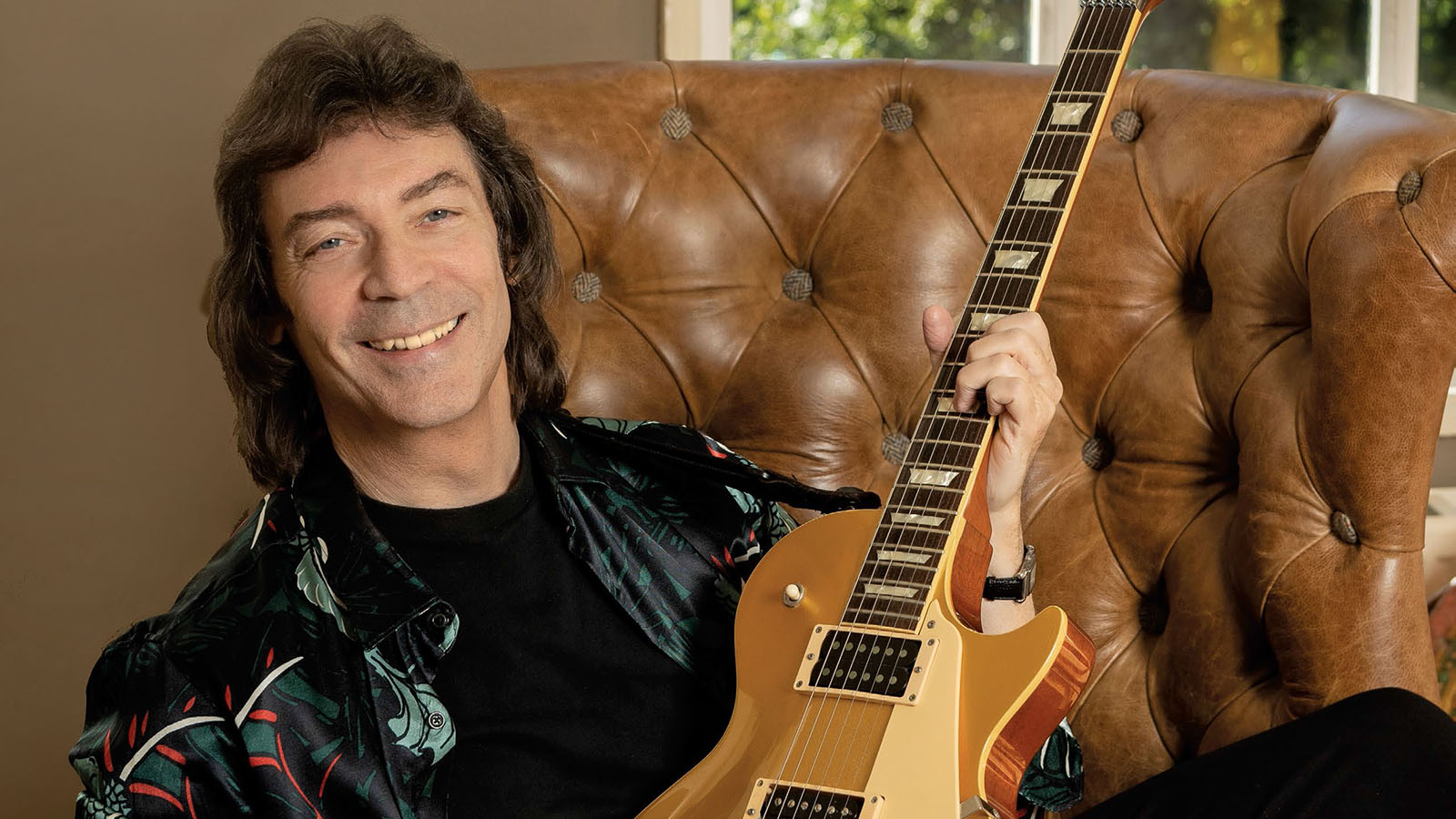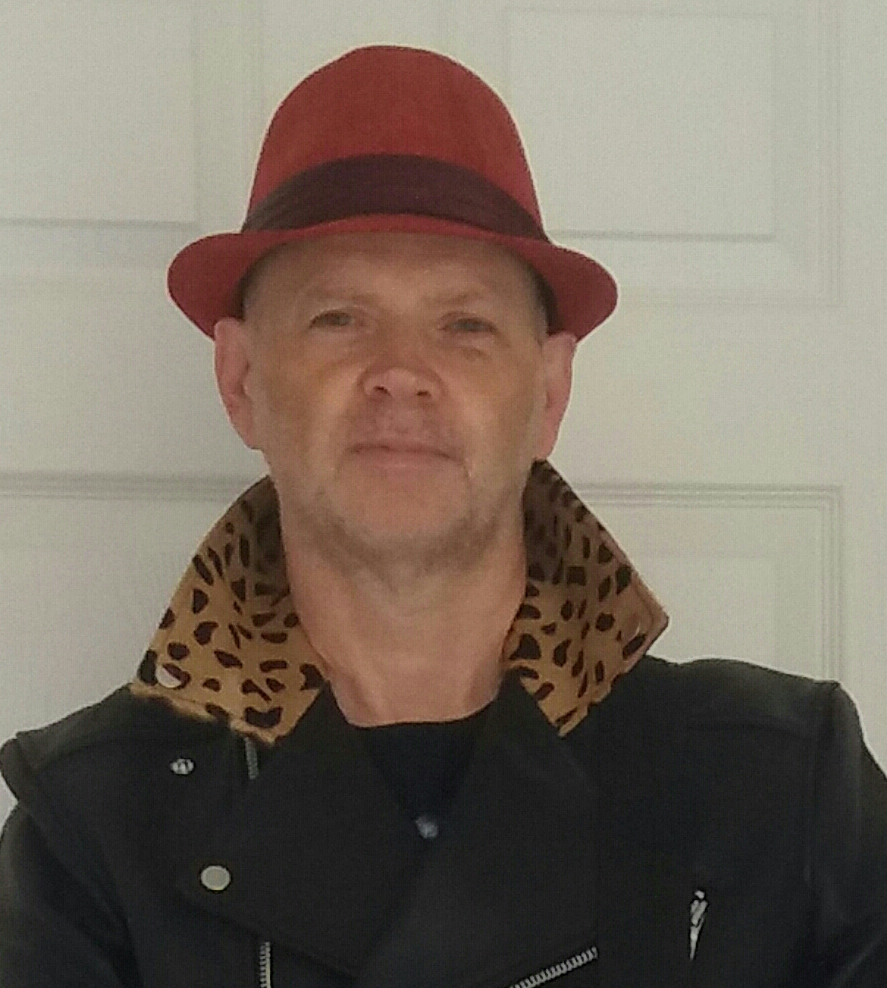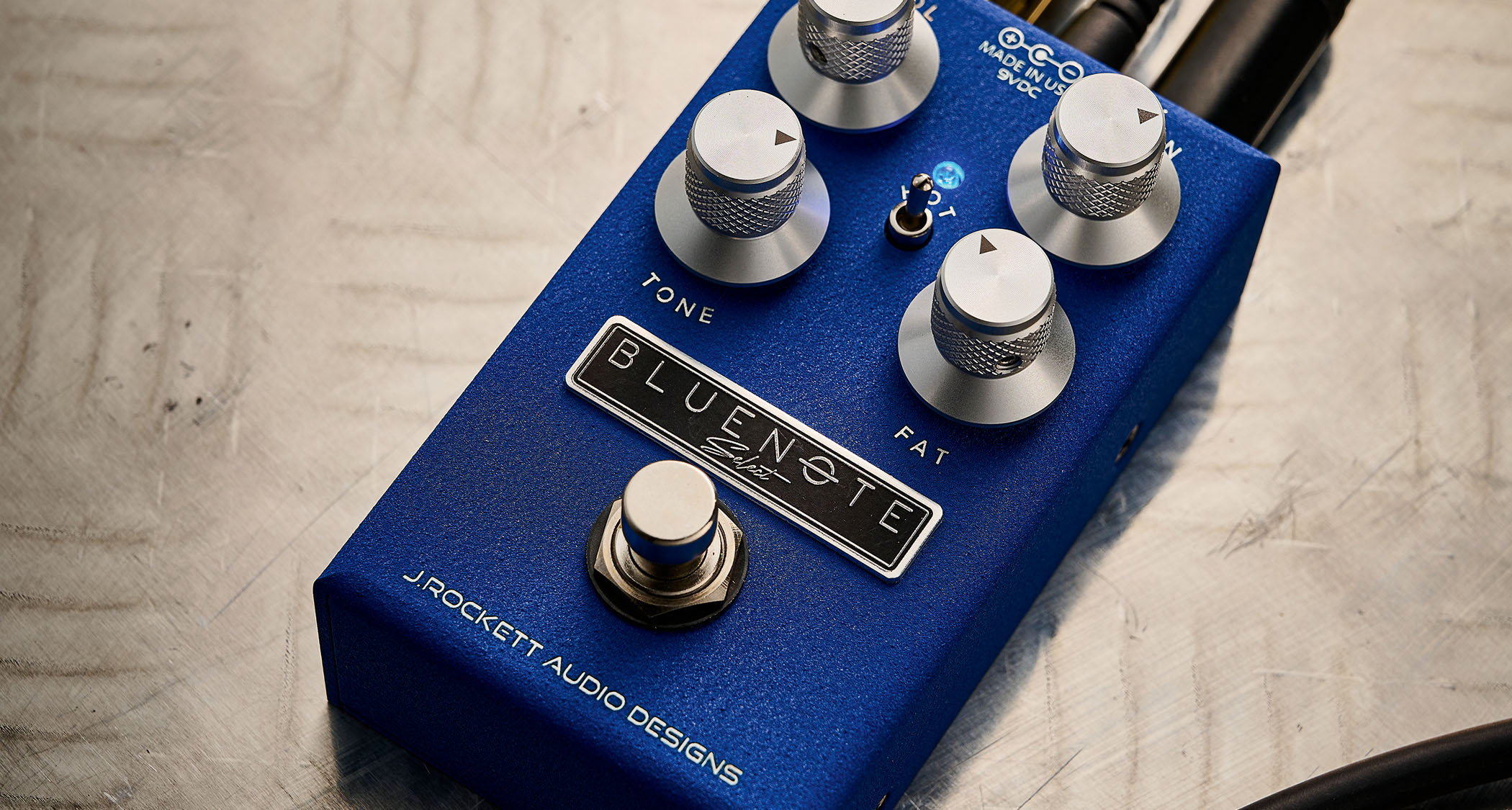Steve Hackett Talks Favorite Genesis Moments, Joe Bonamassa and New Album, 'At the Edge of Light'
He was two-hand tapping long before it became “the thing to do,” was a member of Genesis, formed GTR with Steve Howe and has been releasing top-notch solo albums for more than 40 years. But what GW readers really wanna know is...

This universally respected U.K. prog-rock guitarist was two-hand tapping long before it became “the thing to do” in the late Seventies. He spent the bulk of that decade as a member of Genesis, went on to form GTR with Steve Howe in the Eighties and has been releasing top-notch solo albums for the past 44 years — including his brand-new disc, At the Edge of Light. But what Guitar World readers really want to know is...
How did you develop your incredible vibrato, which is especially awesome on songs like Genesis’ “Firth Of Fifth,” and what tips do you have for developing similar expressive, musical vibrato? —Blayne Beeler
Funnily enough, I practiced vibrato more than any other thing. The best thing I would say is to bend upwards with the third finger and keep the first and second fingers behind it for support and concentrate on a slow and wide vibrato. That way you can avoid the pitfall where some guitarists sound more like a twitch than a vibrato. Wide and slow is the way to go.
What is your favorite song from your solo career? —Troy Tennard
One of my favorites is “The Virgin and the Gypsy” from Spectral Mornings. There’s every chance I’ll be doing that live in 2019 when I’m doing Spectral Mornings and [Genesis’] Selling England by the Pound back to back.
Is there a chance we’ll finally get to hear “Tigermoth” performed live, and would you ever do a tour just concentrating on your solo material? —Kilian Lee
There’s every chance that we will be playing “Tigermoth” live. We’ll have to rehearse it a bit — make sure it flies! I used to do the solo stuff exclusively on some of my previous tours. What I’ve found now, though, is that mixing Genesis and solo material has rekindled interest in the old catalog and has opened up the opportunity for longer tours and bigger venues. I think it’s perfectly valid to perform the Genesis songs I was closely associated with and wrote parts for, and it’s great for the fans to be able to hear those songs that they’ve loved for so many years.
Get The Pick Newsletter
All the latest guitar news, interviews, lessons, reviews, deals and more, direct to your inbox!
How was the experience of working with Richie Havens in the Seventies, and what’s the inspiration for “How Can I?” —Unai Zarraolandia
It was great to work with Richie. It was a kind of unrequited love song. “The car’s running out of gas” and lines like that were metaphors. It was one of the songs that Richie chose from the pile I had, and it was an absolute joy to work with him. To hear that voice, it was just extraordinary.
In films of Genesis in concert, it seems you were always sitting down. Were you just lazy or what? —Larry Stoltenberg
I was asked to sit down when I first joined the band; it was practically written into the contract. We were all supposed to sit down except Peter [Gabriel]. In later shows from 1976 onwards I would stand up unless maybe I was playing acoustic guitar.
I’m looking forward to getting my hands on At the Edge of Light. In the meantime, what can you tell me about it, and what’s your favorite track from it? —Chazz Bennett
I really love the new album. There’s a wide range of material, even including elements of psychedelia on one track. I think the second track, “Beasts in Our Time,” which is a play on the phrase “peace in our time,” is my favorite. It’s got a great tune and a great guitar workout as well.

• Kiss Legends Gene Simmons and Paul Stanley Talk Ace Frehley, Vinnie Vincent, Bruce Kulick and More
What’s the story behind “Underground Railroad” on the new album? Was it inspired by Colson Whitehead’s book of the same name? —Mark Ellmore
It was, yes. I’d heard about the book and that Barack Obama and Oprah Winfrey had really recommended it. That song features me playing Dobro on record for the first time. It’s a real bluesy track, definitely a track guitarists would gravitate toward. It keeps morphing as it progresses; it’s got great female vocals and slide guitar, fingerpicking — it takes you on a journey.
Are there any young, up-and coming guitarists you’ve been listening to lately? —Forrest Cunning
Many guitarists are very young compared to me! I actually like Joe Bonamassa a lot. I think he’s done some great things for the blues. He’s also been known to play some Genesis, Yes and Jethro Tull songs live, which is a great tip of the hat to that genre. It’s interesting how that type of material can translate into a more blues-orientated idiom.
Having been a fan for more than 45 years, I’ve always wondered if you’ve ever had a dream or meditation that inspired you to create a song. —Shireen Nickel
Yes. I remember learning how to do transcendental meditation, and it was when I was keen on the idea of working with Richie Havens. I had a song I thought might suit him and as I was meditating I was thinking about the song and I could actually hear him singing certain words and lines.
What’s your favorite Genesis moment? —Kyle Von Craig
I really loved playing the intro to “Watcher of the Skies” the first time we did it live in Italy. The crowd went nuts for it. It’s hard to reduce a career to a best moment, really. It could be the best gig, favorite album, you know? That “Watcher” moment is what immediately springs to mind.
Are there more unfinished songs in the Genesis and solo Hackett vaults like “Deja Vu,” and do you want to revisit or finish them? —Antonio Oaxaca
There was a track called “Twilight Alehouse.” It was basically an unfinished song. It was released as a free giveaway back in the day, and I think it’s turned up as a demo on an odds-and-ends compilation album. I wouldn’t stick to it as it was written, though. I’d probably take it to the mountains with guitars and sax and make it explode.
Why don’t you change the singer, Nad, in your live band? —Giampaolo Palazzo
I’ll answer that without rising to the bait! I think the assessment of whether someone sings or plays wonderfully is entirely subjective and it’s easy to apply prejudice. Personally, I think he’s a really good singer and he does the Genesis stuff really well. You could have a hundred different singers, and someone would have something to say. It’s pretty big shoes to fill. It was hard for Phil Collins singing Peter Gabriel material, and there was criticism there at first. I understand fans would like to turn the clock back and put the original team together. I’ve always said I’m up for a reunion if the other guys were.
Seconds Out is my favorite live album of all time. I remember watching the Genesis In Concert concert film at the cinema a few years after Seconds Out was released. The guitar was a lot higher up in the mix and a revelation. You left the band while Seconds Out was getting mixed and I believe you had little input in the last remixes. Do you feel that the track was “dumbed down” after you left? —Pete Shields
I think on certain tracks they might have shot themselves in the foot a bit. Why would they do that? But then on a track like “The Carpet Call,” the guitar is quite prominent in the mix when it was only supposed to be a floating, violin-like voice. I suppose it doesn’t really pay to overthink things from way back.
Have you ever considered reaching out to the old gang from Genesis about doing another project or just jamming on just one song? Not necessarily the whole group but, like, maybe one of them? —Matt Lovell
Most of the time, whenever we try to put together any combination of Genesis, it gets really complicated and never comes to fruition. It would be great, but so far it remains as a somewhat dysfunctional unit! I understand why fans always want to see the original members playing or recording together again. I try to honor the music of Genesis in my own shows and I hope the fans appreciate that. John Lennon once said, in an interview in 1973, that Genesis was one of his favorite bands, and that’s the era of the band that I tend to specialize in. I was greatly inspired when he said he was interested in the band in any shape or form. I think the “long form” Genesis was a more adventurous band — unconstrained by video or radio, etc.
Do you think you will ever write an epic symphonic prog rock song that lasts more than 20 minutes like “Supper’s Ready”? —Peter Kistemaker
It’s a good idea. I think “long form” gives you a chance to establish a story, have several instrumental workouts, take you on a journey. Classical musicians have plenty of music that is lengthy, taking a theme and reshaping it, etc. It really lets you stretch out. It probably wouldn’t get played on the radio at all but that’s not the purpose of music.
What advice would you give a young guitarist to stand out and get noticed in the modern music scene? —Phil Capanelli
It would be the same thing that would drive me now that drove me back when I started: getting beyond the frustrations and never giving up. The break might be just around the corner. The thing about destiny, it might be around the corner, but if you don’t stay on the path you won’t find it! Keep being persistent and don’t give up. The only way you can create ultimate bad luck is by walking away from the poker table!
“Firth Of Fifth” is one of my favorite guitar solos ever. what’s the secret to the sound and sustain? If I can be cheeky and ask a second question, What was the inspiration for the tapping section in “Dance With The Moonlit Knight”? —Michael Hargreaves
In 1973 I’d just got an Echoplex, Hiwatt amp, a Tonebender and a Schaller volume pedal and I noticed when I hit a high F# it would just distort and feed back perfectly. Although it was a fuzz box, it had a real thick tube sound and the combination sounded great for that melody, so I stretched it out. The guys thought it was a great sound and they really encouraged me to extend the solo.
I started tapping in 1971, two years before “Dance.” The inspiration was to be able to play very fast on one string. I then realized you could move it from string to string. I think at the time I was recording it I thought it was the kind of thing that Phil [Collins] would like; it was fast, but it was very rhythmic. The second half of the song was supposed to take off like a rocket, so that was a very satisfying moment from Genesis days. I always think “Dance,” “Firth” and the end of “Supper’s Ready” are probably the most iconic electric guitar moments from Genesis.
Mark is a freelance writer with particular expertise in the fields of ‘70s glam, punk, rockabilly and classic ‘50s rock and roll. He sings and plays guitar in his own musical project, Star Studded Sham, which has been described as sounding like the hits of T. Rex and Slade as played by Johnny Thunders. He had several indie hits with his band, Private Sector and has worked with a host of UK punk luminaries. Mark also presents themed radio shows for Generating Steam Heat. He has just completed his first novel, The Bulletproof Truth, and is currently working on the sequel.
Guitar World Discussion: Who is the most underrated guitar player of all time?
Ozzy Osbourne’s solo band has long been a proving ground for metal’s most outstanding players. From Randy Rhoads to Zakk Wylde, via Brad Gillis and Gus G, here are all the players – and nearly players – in the Osbourne saga















